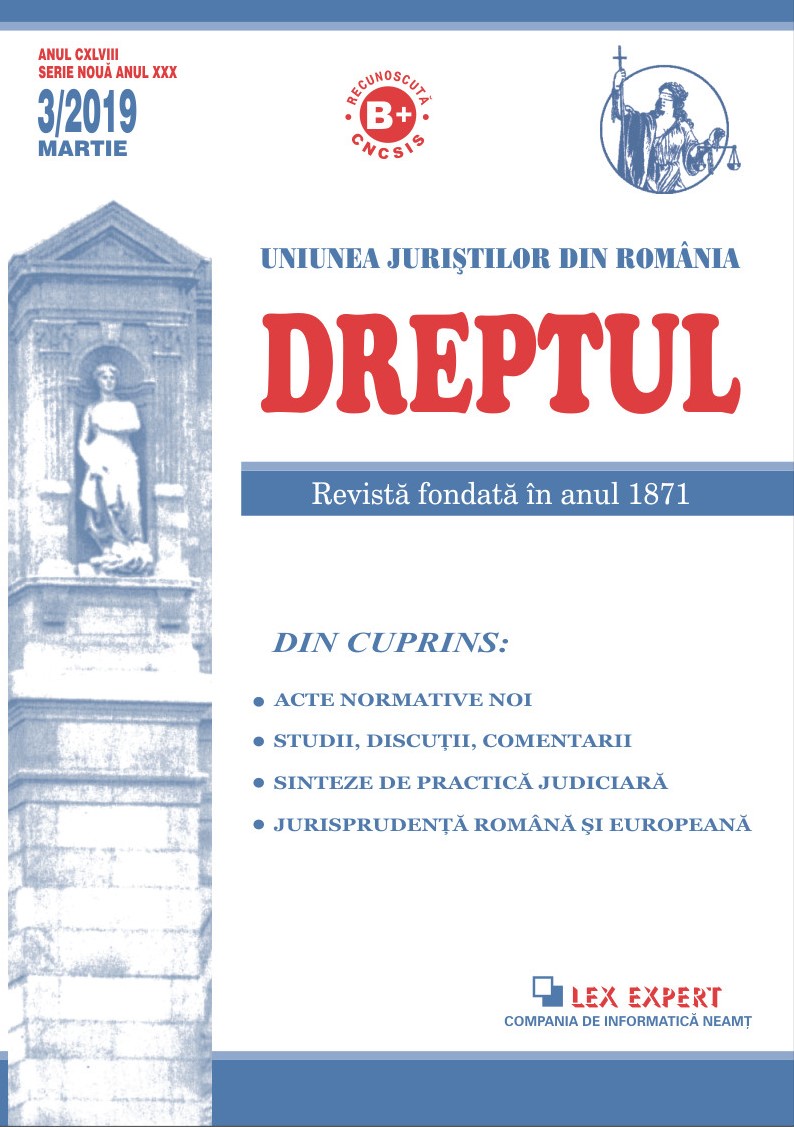Mijloacele materiale de probă în procesul civil
Material means of evidence in the civil trial
Author(s): Maria FodorSubject(s): Law, Constitution, Jurisprudence, Civil Law
Published by: Uniunea Juriștilor din România
Keywords: material means of evidence; regulation; the Romanian Civil Procedure Code; the Civil Code of Québec; case law of the French Court of Cassation;
Summary/Abstract: As a novelty, the legislator provides, in the current Civil Procedure Code, that the evidence ofan act or of a legal fact can be made, among others, by using the material means of evidence (Article250), to which it dedicates the provisions of Articles 341–344, provisions which constitute thecommon law in the matter.Things which, by their attributes, by their appearance or by the signs or traces they preserve,serve to establish a fact that can lead to the settlement of the trial are material means of evidence.Likewise, in the legislator’s conception, the registrations of the state or location of objects or certainfactual situations, regardless of the way of registration, are also material means of evidence. In thishypothesis, the material evidence (the content of the registration) is submitted to the court throughthe technical support used for registration.The solution of the legislator to acknowledge, in the Civil Procedure Code, provisions relative tothe material means of evidence is natural, since, in accordance with the criteria used in the doctrine,material evidence is direct, primary, or immediate evidence, personally perceived by the judge of thecase. Perhaps that one of the sources of inspiration for the Romanian legislator was the Civil Code ofQuébec.Although the French civil legislation does not contain express provisions on the materialevidence, the French doctrine and the case law of the French Court of Cassation in the matter havealso represented a reference for the Romanian legislator.Prior to the approval of the material means of evidence, the court will verify their admissibilityboth from the perspective of the provisions of Article 341 of the Civil Procedure Code, as well as ofArticle 256 of the Civil Procedure Code.The nature of these means of evidence requires their preservation, after they have beenallowed by the court, until the final settlement of the trial. The burden of preserving the materialmeans of evidence available to the court rests with the respective court. This measure can be carried out either by keeping the material evidence at the court’s premises or, if their bringing to courtbecomes difficult, by leaving them in the warehouse of the holder or of another person.As a rule, the examination of the material means of evidence is made by the judge ex propriissensibus, his reasoning being necessary only to derive from the deed personally perceived the legalconsequences thereof.After the final settlement of the trial, the things that are made available to the court to serve asmaterial means of evidence must be returned to those entitled to receive them, if the restitution ispossible and it is not contrary to the law.
Journal: Revista „Dreptul”
- Issue Year: 2019
- Issue No: 03
- Page Range: 88-107
- Page Count: 20
- Language: Romanian
- Content File-PDF

